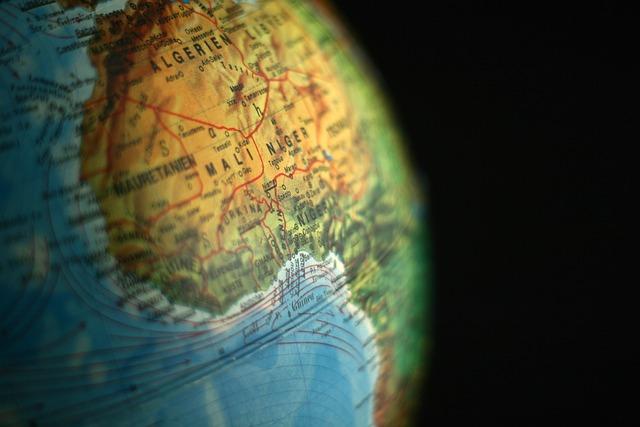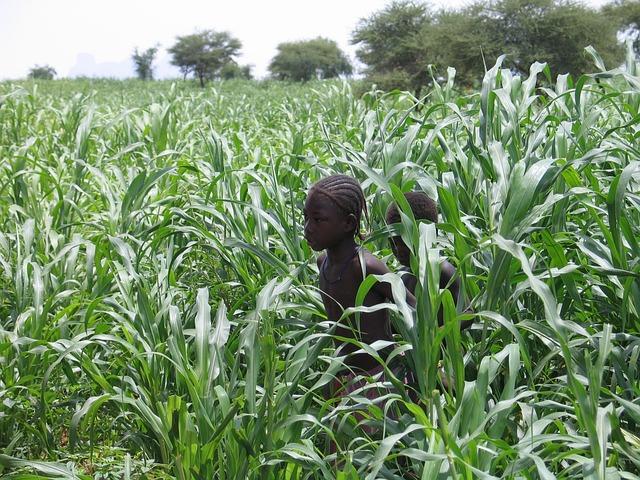In a pressing appeal for human rights in Mali, Amnesty International has called for the immediate release of opposition leaders who have been arbitrarily detained amid escalating political tensions in the West African nation. This situation highlights the ongoing struggles for democracy and civil liberties in a country grappling with a complex political landscape marked by coups and unrest. As the international community closely watches, the rights organization warns that the continued detention of these political figures not only undermines the democratic process but also poses a grave threat to the principles of freedom and justice.This article examines the context of the detentions, the implications for mali’s political future, and the urgent need for action from both national and international stakeholders.
Mali’s Political Landscape and the Increase in Arbitrary Detentions
Mali’s political landscape has undergone significant turmoil in recent years, marked by a series of coups and an increasingly oppressive atmosphere against dissent. The current regime has expanded its grip on power through widespread repression, targeting political opponents, civil society, and activists.This surroundings has given rise to an alarming escalation in arbitrary detentions, a tactic employed to stifle opposition voices and instill fear among the populace. Key incidents have seen prominent figures arrested without formal charges, raising serious concerns about the legality of these actions and the underlying motives driving them.
the implications of these arbitrary detentions extend far beyond individual cases; they undermine the foundations of democracy in Mali and exacerbate the existing climate of fear. The government’s insensitivity to human rights obligations has been evident, as it continues to ignore calls from international organizations for the protection of civil liberties. The following factors contribute to the deterioration of the political situation in Mali:
- Suppression of Freedom of Expression: Media outlets face censorship, while journalists and bloggers are routinely harassed.
- Manipulation of Legal Frameworks: Laws are weaponized to justify detentions and curb dissent.
- Increased Militarization: the military has taken a front seat in governance,sidelining democratic processes.
- Public Apathy: Fear of reprisal stifles popular mobilization against government abuses.
The Plight of Opposition Leaders: Human Rights Violations in Focus
The recent crackdown on opposition leaders in Mali has raised alarm bells among human rights organizations worldwide. in a shocking display of authoritarianism, multiple figures from the political opposition have been arbitrarily detained, a move widely criticized as an attempt to stifle dissent and suppress democratic voices. Amnesty International has condemned these actions, urging both national and international stakeholders to take a firm stance against the violations of human rights that are intrinsically linked to these detentions. The situation is exacerbated by a lack of transparency in the justice system, leading to extended periods of unlawful detention without charges or fair trials, thereby undermining the rule of law.
The implications of these violations extend beyond the immediate concern for individual rights; they threaten the very fabric of democracy in Mali. The pattern of intimidation and oppression has created a chilling atmosphere for political discourse. Opposition leaders are not only fighting for their freedom but are also symbolic of a broader struggle for political pluralism in the country. To illustrate the magnitude of this crisis, the following table summarizes key statistics regarding detained opposition leaders:
| Leader | Date of Detention | Charges (if any) |
|---|---|---|
| Leader A | January 10, 2023 | None |
| Leader B | February 15, 2023 | None |
| Leader C | March 5, 2023 | Political dissent |
Amnesty International’s Call to Action: demands for Immediate Release
Amnesty International has urgently called for the immediate release of opposition leaders in Mali who have been arbitrarily detained, emphasizing that their continued imprisonment represents a significant violation of fundamental human rights. These leaders have been targeted for peaceful dissent, a stance that undermines the democratic principles that Mali purportedly upholds.The organization insists that the government must take heed of international laws and standards, releasing all political prisoners without delay. Among the specific demands made by Amnesty International are:
- Immediate freedom for all opposition figures currently held without just cause.
- Clear accountability for those who have carried out these unlawful detentions.
- Assurance of political freedom for all citizens, allowing for free expression and assembly.
- Investigation into human rights abuses linked to these detentions.
Furthermore,Amnesty International stresses that the failure to act not only perpetuates a culture of repression but also raises serious concerns in the international community regarding Mali’s commitment to human rights. The organization is mobilizing activists worldwide and plans to implement a robust campaign to highlight these abuses through media coverage,public protests,and strategic lobbying efforts. Below is a summary of the main issues at hand:
| Key Issues | Status |
|---|---|
| Arbitrary Detentions | Ongoing |
| Political Freedoms | Under threat |
| International Response | Awaiting action |
International Response and the Role of global Human Rights Organizations
the international community has expressed significant concern regarding the arbitrary detention of opposition leaders in Mali. Organizations such as Amnesty International, Human Rights Watch, and the United Nations Human Rights Council have been vocal in their demands for the immediate release of these political figures. The ongoing crackdown on dissent serves not only to undermine democratic processes within Mali but also raises alarms about human rights violations. Key aspects of these organizations’ appeals include:
- Condemnation of arbitrary arrests and detentions
- Calls for accountability of security forces
- Advocacy for the protection of freedom of expression and assembly
- Demands for transparent legal processes
Prominent global human rights organizations have a vital role in mobilizing international pressure on the Mali government to adhere to its obligations under international law. By collaboratively documenting abuses and raising awareness, these entities aim to foster a climate where human rights are respected. Furthermore, targeted sanctions and diplomatic efforts have been recommended, emphasizing the need for a unified global stance against repressive regimes. An overview of some of the actions being pursued includes:
| action | Status |
|---|---|
| Official Statements Released | Pending |
| Investigation into Human Rights Violations | Ongoing |
| International Resolutions Proposed | Under Review |
Steps to Strengthen Democracy and Protect Political Freedoms in Mali
To enhance the democratic framework in Mali and ensure the protection of political freedoms, a multi-faceted approach is essential. Engagement with civil society plays a crucial role in this process, as grassroots movements can create greater awareness and demand accountability from government officials. It is indeed vital to establish platforms for public discourse where citizens can express their grievances and suggestions regarding governance. Additionally, international cooperation is necessary, as external stakeholders can provide support through funding, training, and monitoring of elections and human rights practices.
moreover, the implementation of transparent electoral processes is key to fostering trust in the political system. This can include the establishment of an independent electoral commission that guarantees free and fair elections,providing training for electoral staff,and promoting the use of technology to facilitate monitoring. Equally significant is the safeguarding of media freedoms, allowing journalists to operate without fear of reprisal. Education campaigns that emphasize the importance of democratic participation should also be launched to encourage widespread voter engagement and civic obligation among the populace.
The Importance of Accountability: Addressing Impunity in Mali’s Security Forces
Accountability within Mali’s security forces remains a pressing concern, particularly in the context of arbitrary detentions that have been a hallmark of the current regime. The lack of transparency surrounding these actions fosters a climate of impunity, undermining trust between the government and its citizens. This situation is exacerbated by the systematic targeting of opposition leaders, which not only stifles democratic discourse but also raises serious human rights violations. Recognizing and addressing this issue is critical for the restoration of rule of law, as it ensures that security personnel are held accountable for their actions, thereby promoting a culture of responsibility.
To effectively combat impunity, several key measures must be adopted, including:
- Strengthening oversight mechanisms: Establish independent bodies to monitor and investigate misconduct within security forces.
- Implementing transparent processes: Ensure that arrests and detentions are carried out in accordance with national and international laws.
- Enhancing training programs: Provide thorough human rights training for security personnel to reinforce adherence to ethical standards.
- Promoting public awareness: Encourage civic engagement and education on the rights of individuals to safeguard against unlawful detentions.
| Key Issues | Impact |
|---|---|
| Arbitrary Detentions | Violation of individual rights and freedoms. |
| Lack of Accountability | Erosion of public trust in government and institutions. |
| Intimidation of Opposition | Stifling of democratic processes and pluralism. |
Concluding Remarks
the arbitrary detention of opposition leaders in Mali raises serious concerns about the state of human rights and democratic processes in the country. Amnesty International’s call for their immediate release reflects a growing apprehension over the government’s disregard for fundamental civil liberties. As Mali navigates its political landscape, the treatment of dissenting voices will be pivotal in determining the future of its democracy and the well-being of its citizens. The international community must remain vigilant and advocate for the protection of human rights in Mali, ensuring that the voices of opposition leaders are heard and that justice prevails.

